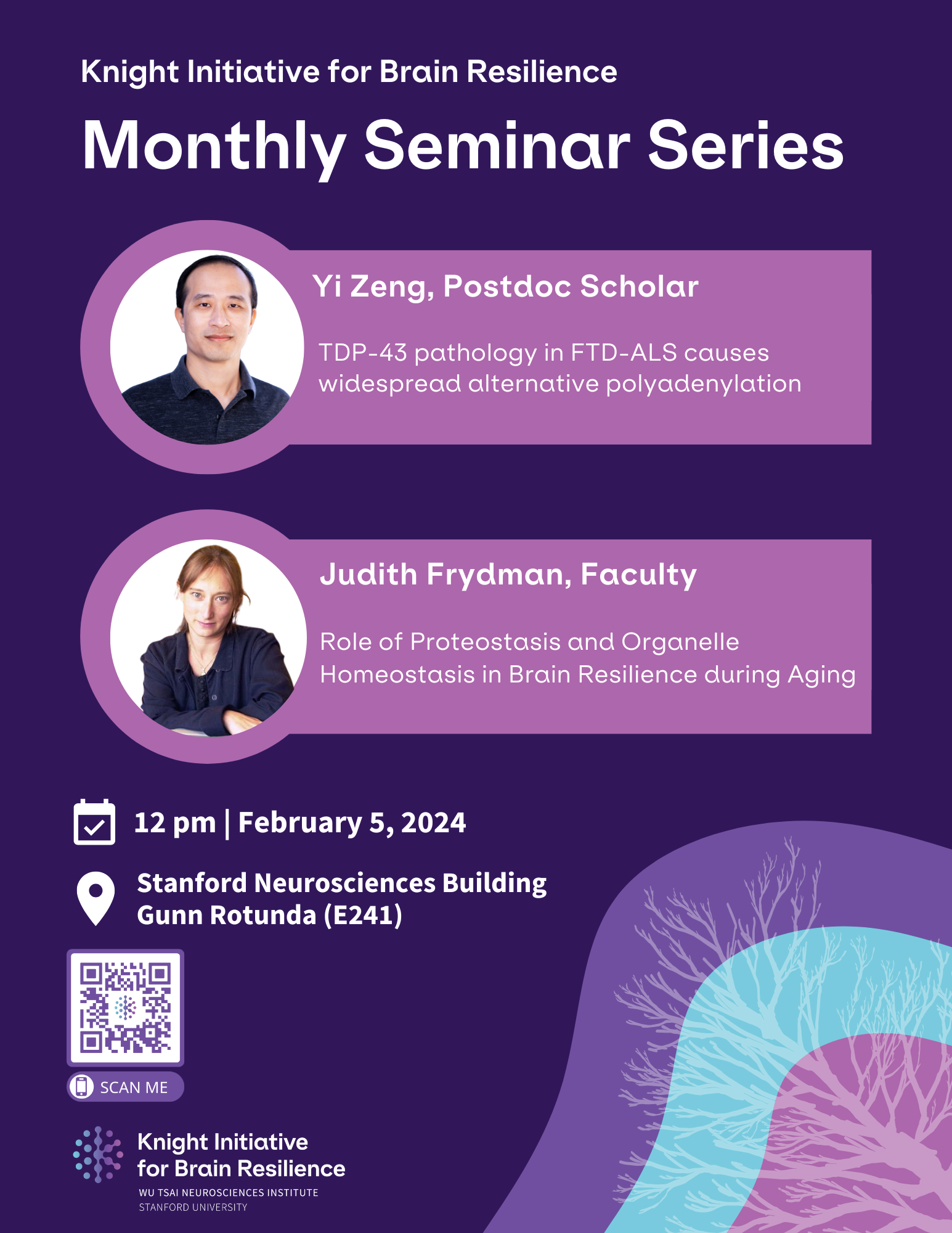Event Details:

The first Monday of each month, the Knight Initiative for Brain Resilience will host monthly seminars to bring together awardees, affiliated professors and students for a series of 'lab meeting' styled talks. Two speakers will discuss their brain resilience research, experiences in the field, and answer questions about their work.
Judith Frydman, Stanford University
Role of Proteostasis and Organelle Homeostasis in Brain Resilience during Aging
Proteins are the major macromolecular constituent of human cells. Their ability to convert genetic and epigenetic information into a myriad shapes and functions is essential for the survival and fitness of living organisms. The proteostasis network governs proper protein folding, stability and clearance as well as organelle homeostasis, and is key to maintaining resilience to stress and mutation. Proteostasis declines during ageing, leading to cellular and tissue dysfunction. In the brain, the aging-linked mismanagement of the proteome and ensuing changes in protein half-life, physical stability, and the accumulation of damaged and misfolded protein increase the risk for degenerative diseases including Alzheimer, Parkinson, and Huntington’s disease, and Amyotrophic Lateral Sclerosis. Despite the importance of this process, the decline of protein and organelle homeostasis in the mammalian brain during aging is poorly understood. We are harnessing human fibroblasts from patients of different ages and directly transdifferentiated neurons as models of aging to understand the progressive dysfunction in proteostasis systems with aging. This will inform how to increase neuronal resilience to ameliorate aging and neurodegenerative diseases.
Yi Zeng, Stanford University
TDP-43 pathology in FTD-ALS causes widespread alternative polyadenylation
In the face of an aging population, neurodegenerative disorders are escalating, posing a growing global health challenge without an effective cure. In several neurodegenerative conditions, the RNA binding protein TDP-43 forms cytoplasmic clumps in neurons, losing its vital function. Despite its essential role in disease, the full spectrum of TDP-43's regulatory pathways, the causes of its dysfunction, and its contribution to neurodegeneration remain elusive. Beyond splicing, TDP-43 also regulates other aspects of RNA processing, prompting the question: do these additional pathways contribute to disease? In this work, we discovered that TDP-43 extensively regulates alternative polyadenylation (APA), a critical layer of gene expression, and its loss triggers widespread APA changes, impacting disease-associated genes. This underscores APA as a novel dimension in TDP-43 pathology, offering a potential therapeutic target. Looking ahead, I will explore the broader landscape of RNA homeostasis in disease pathogenesis and develop new approaches to target RNA processing events therapeutically.
